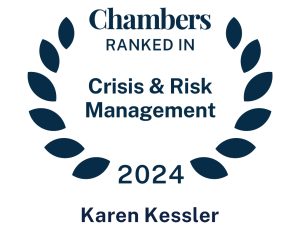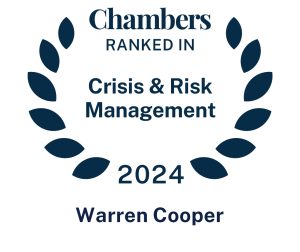The definition of what can be considered a crisis evolves year after year. For that reason, it is incredibly important for every type of organization to know how to select a spokesperson in case a scandal lands on their doorstep. An effective, knowledgeable, and empowered spokesperson is essential to any successful crisis management strategy.
During a crisis, the spokesperson is the “tip of the spear.” They are the individual who represents your organization to external and internal stakeholders, the media, and the greater public. The manner in which the media covers and the public perceives your organization during this period of time – and how effectively the reputational damage is mitigated – will depend in large part on the effectiveness of your spokesperson.
How to Select a Spokesperson for Your Organization
1. Choose an Authority Figure
The selected spokesperson must be informed, articulate, honest, and calm under pressure. This is particularly true if the individual is to participate in an interview or press conference. Additionally, the spokesperson selected by the organization must meet certain criteria: he or she must be senior enough to portray authority, and they must appear well-versed in the issue. Often, the Director of Communications or someone of a similar title will meet the criteria. But in certain instances, someone who has direct knowledge of the issue or who oversees the affected department/team should be the spokesperson.
In crisis situations, the credibility of the organization and the organization’s Executive Team is paramount. For this reason, you should not always select the Chief Executive (CEO, President, Executive Director, Head of School, etc.) as the initial spokesperson.
2. Uphold Values-focused Messaging
What the spokesperson says will be carefully scripted. It is also imperative that he or she purposefully communicates and aligns internal and external messages. Often, it is helpful to bring in outside professionals. A professional PR partner with experience managing crisis communications can help craft messaging for the spokesperson. That way, they can help ensure that the messaging will match the organization’s mission and reflect its core values while mitigating reputational harm.
Without this clear, empowered, and uniform voice, crises have a way of unravelling quickly. Selecting one authoritative, legitimate spokesperson is key to navigating the waters of a reputational crisis.










